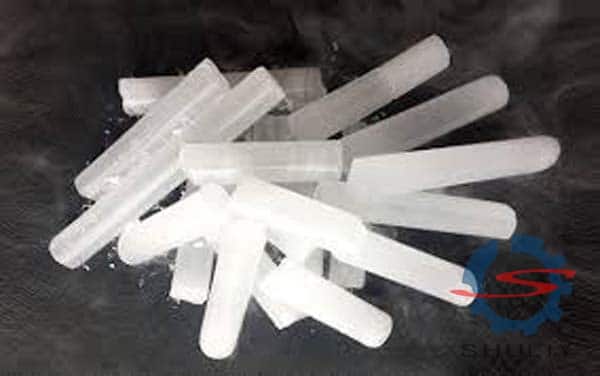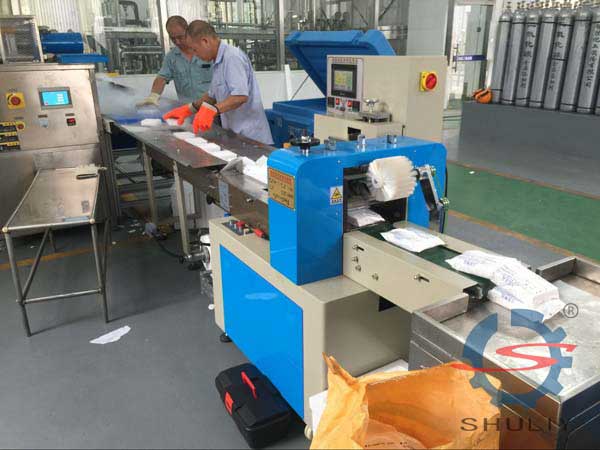Dry ice and ice are two very different substances, and their physical and chemical properties are different. For customers who make and use dry ice, the huge difference between dry ice and ice is especially important. As the year’s dry ice machine manufacturer, we Shuliy machinery can not only provide you the best dry ice pellet machine and dry ice block machine but also can provide you with detailed dry ice basics.
The main difference between dry ice and ice
The temperature of dry ice is generally -78 ° C, and the temperature of ice is 0 ° C. Dry ice is solid carbon dioxide CO2, which will sublimate into carbon dioxide gas when exposed to heat. This process does not go through the solid-state and directly becomes gaseous. Ice is a solid-state of water, which melts into liquid water when heated. Even if it is boiled in boiling water at 100 ° C, it will not vaporize directly and must be liquid. Liquid water only vaporizes into water vapor when the temperature reaches its boiling point.

Put dry ice and water into two cups filled with water. The dry ice comes out with thick white smoke, and ordinary water ice does not change significantly. If you touch it with your hands, it will only feel cold if you put water ice on your hands for 1-2 minutes, and dry ice will hold it for less than 5 seconds, you will definitely throw it away because it is so cold that it stings you directly hand! From this experiment, we can distinguish between dry ice and water ice simply and intuitively.
How to properly preserve dry ice pellets and dry ice blocks?
Dry ice is solid carbon dioxide, and there is no water after volatilization, but because the temperature of dry ice is very low, it is about -78 degrees. Therefore, when purchasing dry ice particles or dry ice cubes, you should pay attention to it. If there is no special insulation equipment and proper storage methods, the dry ice will continue to volatilize and be consumed quickly.

Before purchasing dry ice products, you need to prepare an incubator. The glass liner insulation equipment is not recommended. The glass liner may not be able to withstand the severe temperature changes caused by dry ice and will break. You can prepare a foam plastic box, which will have a good thermal insulation effect after adding enough cotton inside. It is also possible to use a special dry ice incubator, but it is important to note that after putting dry ice in it, you cannot tightly seal the lid of the box, otherwise the interior will explode because the sublimation pressure of dry ice continues to rise.
Dry ice is used in much the same way as ordinary ice cubes, but its temperature is much lower than ordinary ice cubes. Non-fibrous gloves must be worn when touching by hand. Because dry ice is volatile, the remaining dry ice must be wrapped with insulation material and stored in a freezer. This will slow down the evaporation rate of dry ice.